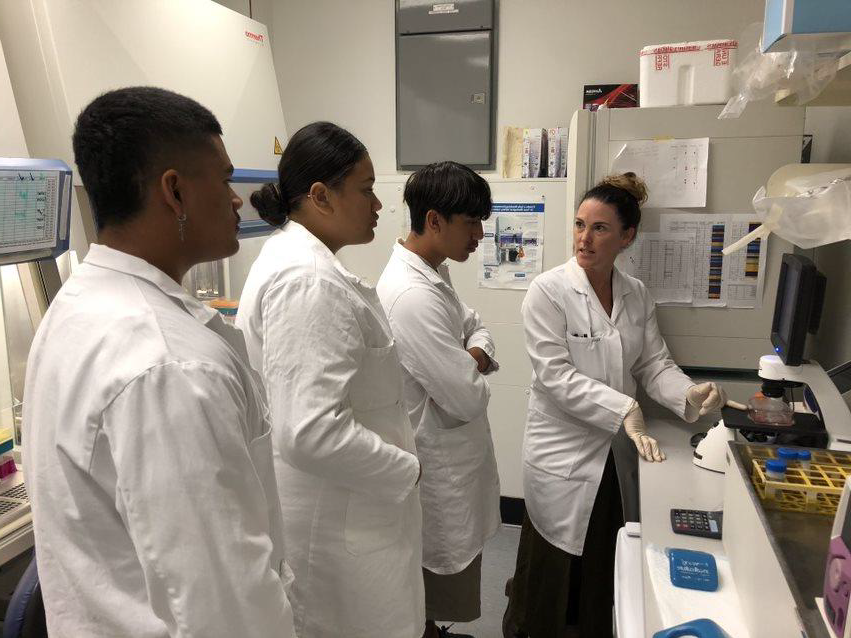Collaboration a bridge to new knowledge
Four years ago, MWC and The Moko Foundation formed the Waharoa ki te Toi Health Research Centre in Kaitaia to drive outreach including to deliver the Fructose in Schools (FIS) and the genetic CREBRF studies locally. This was the genesis of a relationship which centred on the kaupapa of ‘Creation of knowledge’.
Conor Watene O’Sullivan, Health Research Coordinator for the Moko Foundation says the relationship has grown and evolved. “We have science going out to communities, and we have the knowledge that our communities hold being absorbed back into that science space. Our community knowledge complements and enriches the scientific research. Now, many people have had the benefit of a combination of touch points and experiences over time. It’s this continuity that can lead to change and empowerment.”
Over the last 18 months, with funding support from MWC, the Moko Foundation has been bridging the gap between western science and mātauranga Māori to create a mana enhancing model for cultural improvement.
“We are moving into this era of coming together; addressing the cultural gap between many different peoples and cultures - whether that is Māori and Pākehā, mātauranga Māori and western science, or rural communities connecting with urban centres. It is a huge job.”
Cultural bridges are underpinned by the ideas of balance and reciprocal learning for both MWC and the Māori rural communities. One example is the guidance from Penetaui Klestovic as Pou Tikanga. Penetaui has helped Conor design surveys for researchers to understand their gaps in mātauranga Māori.
“From this, we have delivered tailored workshops to enhance the cultural knowledge base of MWC researchers who are specifically working in programmes across Māori, equity and genetic research. We have also provided alternative perspectives to the CREBRF research that reflect Māori-centric views on hauora and rangahau.”
A recent tranche of MWC funding is also helping the Moko Foundation to increase Māori capacity and capability in science through workforce development. The joint effort is shaping a staged pathway for rangatahi into health and science careers. This begins with modifying science messaging to fit the local context, mentoring, providing financial scholarships for school leavers, and creating a pilot model for paid internships for medical health and science students to experience community-based research in a high-needs population.
This year, Karangatai Piripi has been supported through the Tā Hekenukumaingaiwi Puhipi internship, named in recognition of the centre’s patron. This internship has enabled Karangatai to work with Conor in health research work across the FIS programme delivery.
Part of this pipeline is the Te Ara Pūtaiao scholarship comprising a one-week visit to University of Auckland laboratories for up to five Year 12 and 13 Far North students. The first recipients visited the Grafton Campus in March 2021, blessing the CREBRF samples and connecting with a Māori geneticist, and a medical student from Kaitaia. They also observed cell culture, DNA amplification techniques, and took part in strength testing, DEXA bone density and resting metabolic rate scanning.
Tracy Macfarlane, founder of The Moko Foundation, says looking ahead Waharoa ki te Toi may be a valuable platform for other communities. “Like Kaitaia, other communities have their own way of doing things. A great outcome for us would be to share with other providers around the motu to recreate what we have done in their own way.”

Te Ara Pūtaiao scholars visit a laboratory at The University of Auckland (L-R): MWC Associate Investigator Lennox Ashby, Mereana Thoma, Reihana Teriaki and Dr Kate Lee. Photo courtesy of The Moko Foundation.